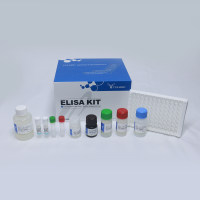Chemosensitization of Tumor Cells: Inactivation of Nuclear Factor-Kappa B Associated with Chemosensitivity in Melanoma Cells After Combination Treatme
互联网
互联网
相关产品推荐

Melanoma gp100 Rabbit pAb(bs-17478R)-50ul/100ul/200ul
¥1180

促销中大鼠肿瘤坏死因子α(TNF-α)/Rat TNF-α/tumor necrosis factor (TNF superfamily,member 2)/Tnf;Tnfa;Tnfsf2;Tumor necrosis factor;Cachectin;TNF-alpha;Tumor necrosis factor ligand superfamily member 2;TNF-a) [Cleaved into: Tumor necrosis factor;membrane for/TNF/ELISA试剂盒
¥3420¥3800

NRF1/nuclear respiratory factor 1 单克隆抗体 66832-1-Ig
¥1350

MKN45人低分化胃癌细胞|MKN45细胞(Human Poorly Differentiated Gastric Cancer Cells)
¥1500

RELA/NF-kappa B p65重组蛋白|Recombinant Human RELA/Transcription factor p65 Protein(aa 1-306,GST Tag)
¥1400
相关问答

